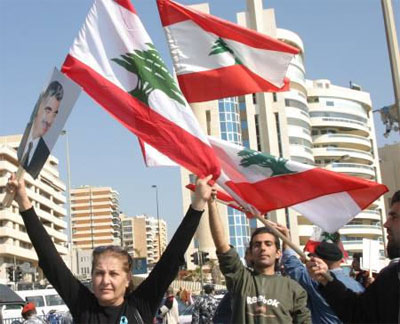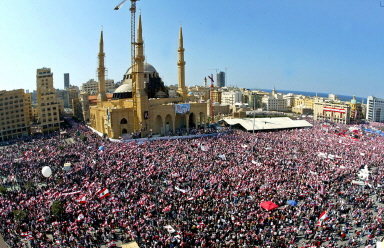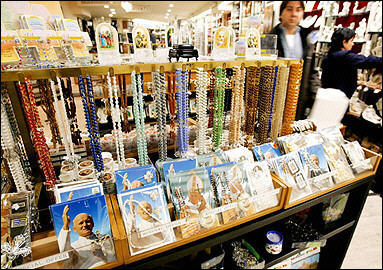|









|
|
- Three questions….to
Jacques Gaillot
The demonstrations in Beirut bring without
doubt some hope to the Lebanese people but are they not afraid
to bring back the divisions of the past? How do you analyze the
events that followed the death of Raffic Hariri?
-
- The assassination of the former
Lebanese Prime Minister has been a trigger event. It gave to
the Lebanese people the opportunity to express their wish for
freedom, for the Arab leaders to take party and Syria to move
their soldiers out. For the first time peaceful demonstrations
have forced an Arab government to dismiss.

|
However nothing is simple in Lebanon
as in the Middle East. |
-
- In Lebanon, oppositions are still
present. For Lebanese Hezbollah and Shiite community nothing
can be solved before the end of the Palestinian-Israeli conflict.
It tells how urgent is peace in this region.
Anyhow for many Lebanese, the departure of the Syrian security
forces is a liberation.
-
- Lebanese history seems to show
that nationalism (promoting the nation) is a factor of unity.
Instead, religion looks like a factor of division. Isn't it painful
for a man of the Church like you?
-
- What is painful for me is to see
the Lebanese people interested more by their belonging to their
own religious community than by the problems of their country,
such as unemployment. The common good should prevail. When the
crowd was demonstrating on Liberty Square, the concern for the
«nation» came first. Differences that were usually
separating the Lebanese were put in the background. This gives
hope.
-
 |
Cardinal Sfeir, Maronit Patriarch of Lebanon, is well respected
in the country. Nothing can be done without him. He understands
that the partitioning between denominations at the religious
and political level has to be overcome, but he said, «People
have to learn to think in another way»
-
- Let us speak again about the
Pope's health. He left hospital but still looks very feeble.
It is hard to imagine that he continues to manage the affairs
of the Church. Don't you think that his role is going to be exclusively
symbolic even iconographic? Certainly it is a function for the
pope but is it sufficient?
-
- We know now that the Pope is in
the terminal phase of the Parkinson disease. In his medical apartment
in the Vatican, his Polish secretary is all-powerful. To be able
to see and speak to the Pope, one has to have permission from
him. Otherwise we are left with few appearances of John-Paul
II. Power is elsewhere. Other prelates take care of the affairs
of the Church. It is just management but no decision. One is
more interested by the Pope's health than by the state of the
Church.
The Cardinal of Köln said for the World Youth Gathering
to be held this summer: « It is enough that the Pope be
present. His only presence is a testimony for the young».
-

|
The Pope has been made into an icon
that is presented and moved around. |
The life of the Christian people deserves more.
(Interviewed by Olivier Galzi)
|


